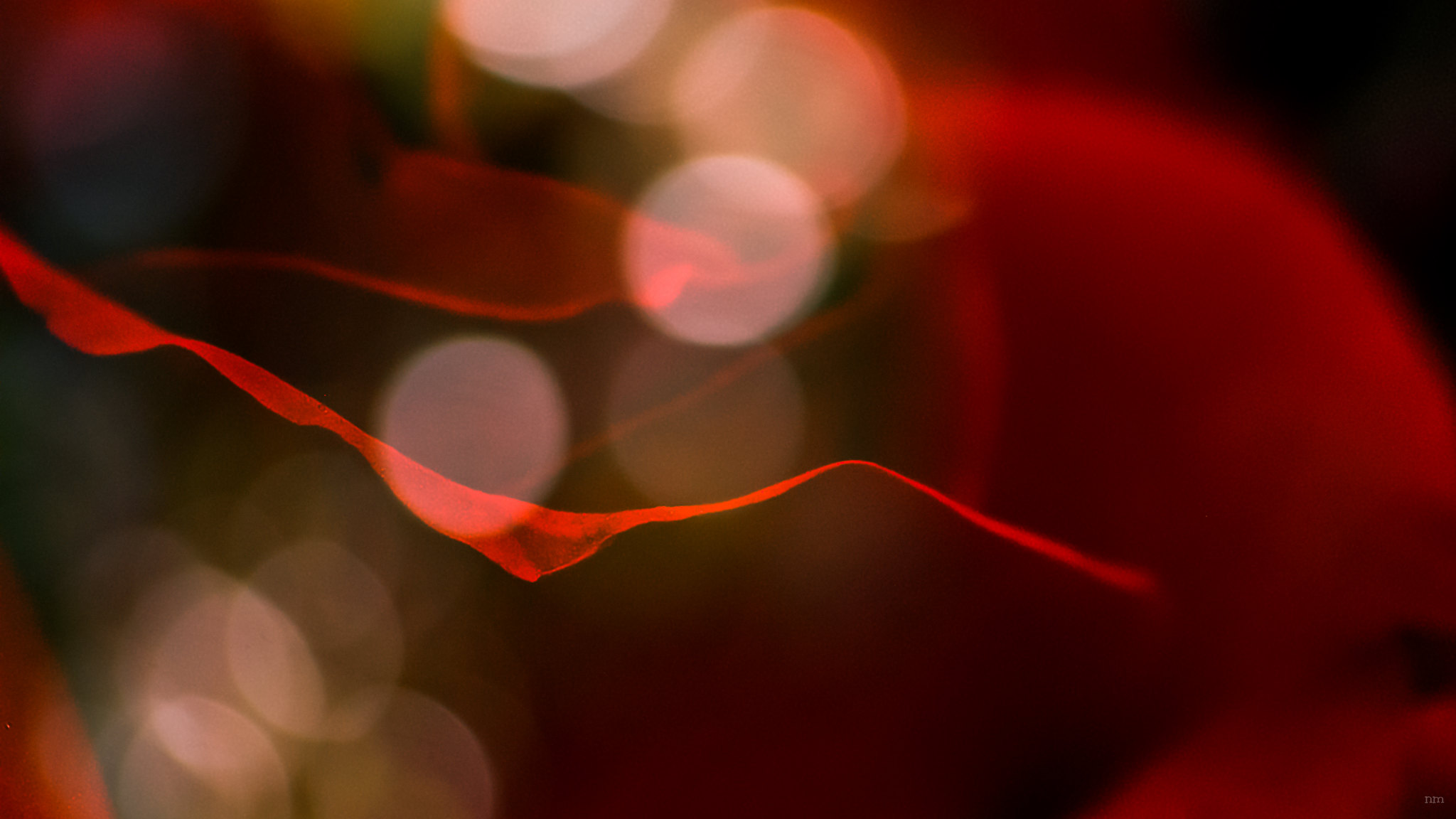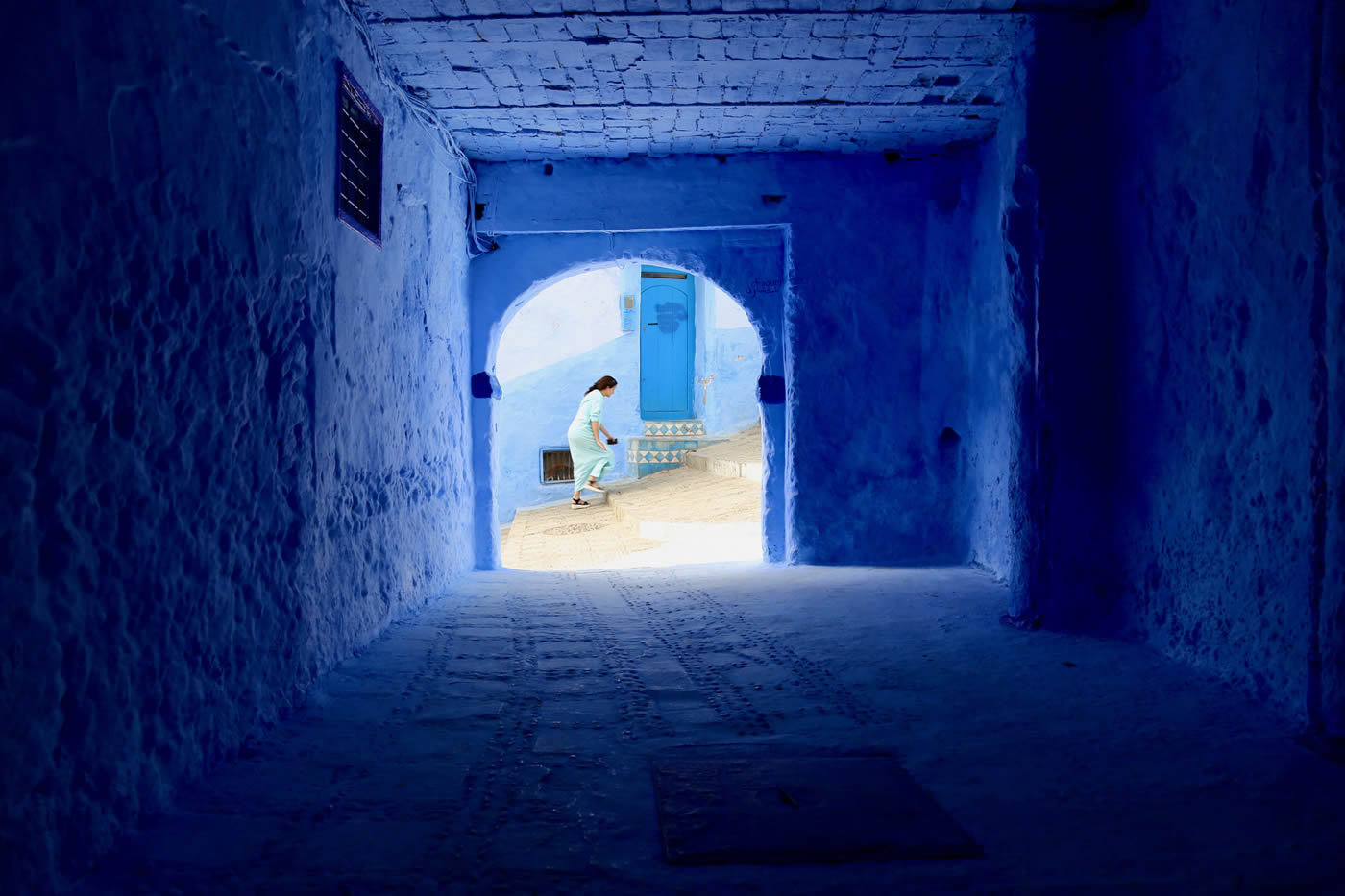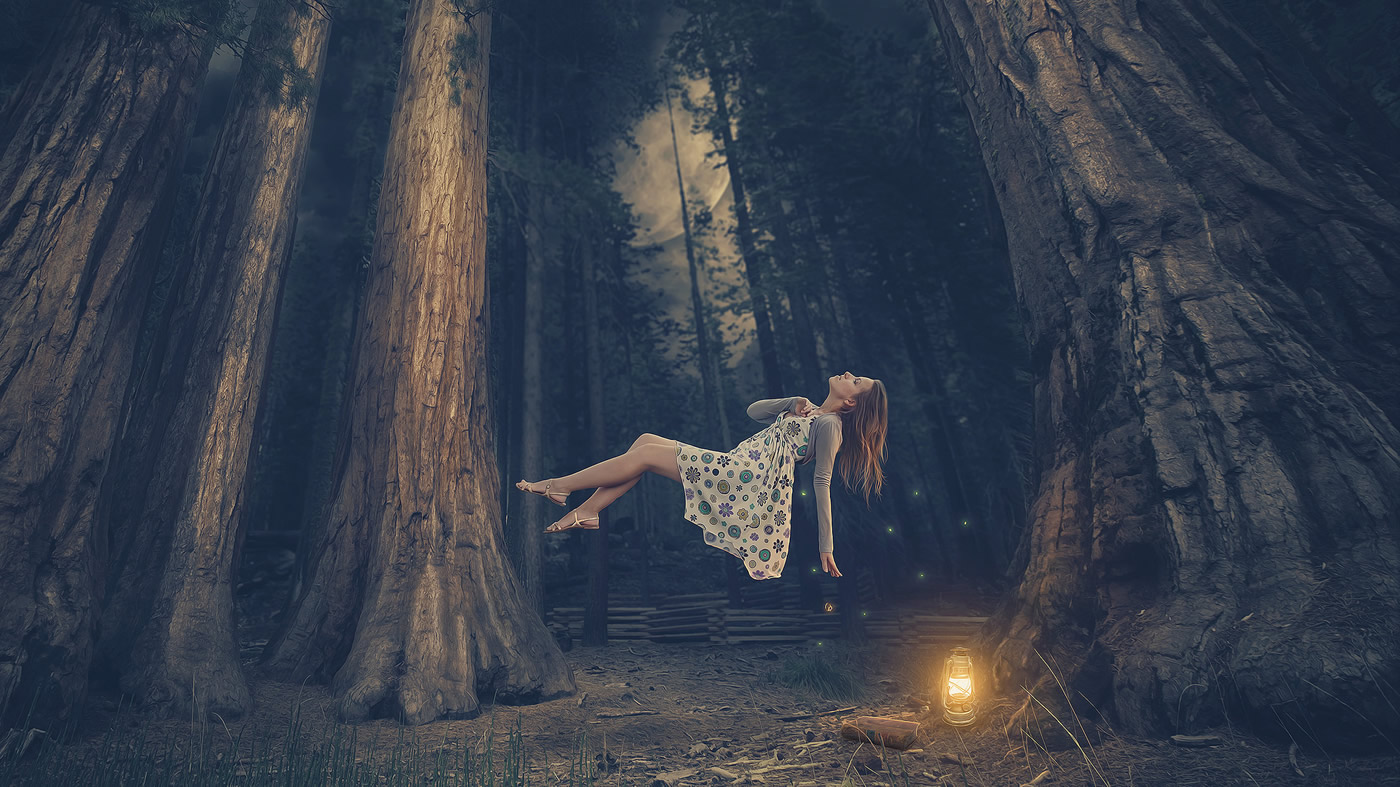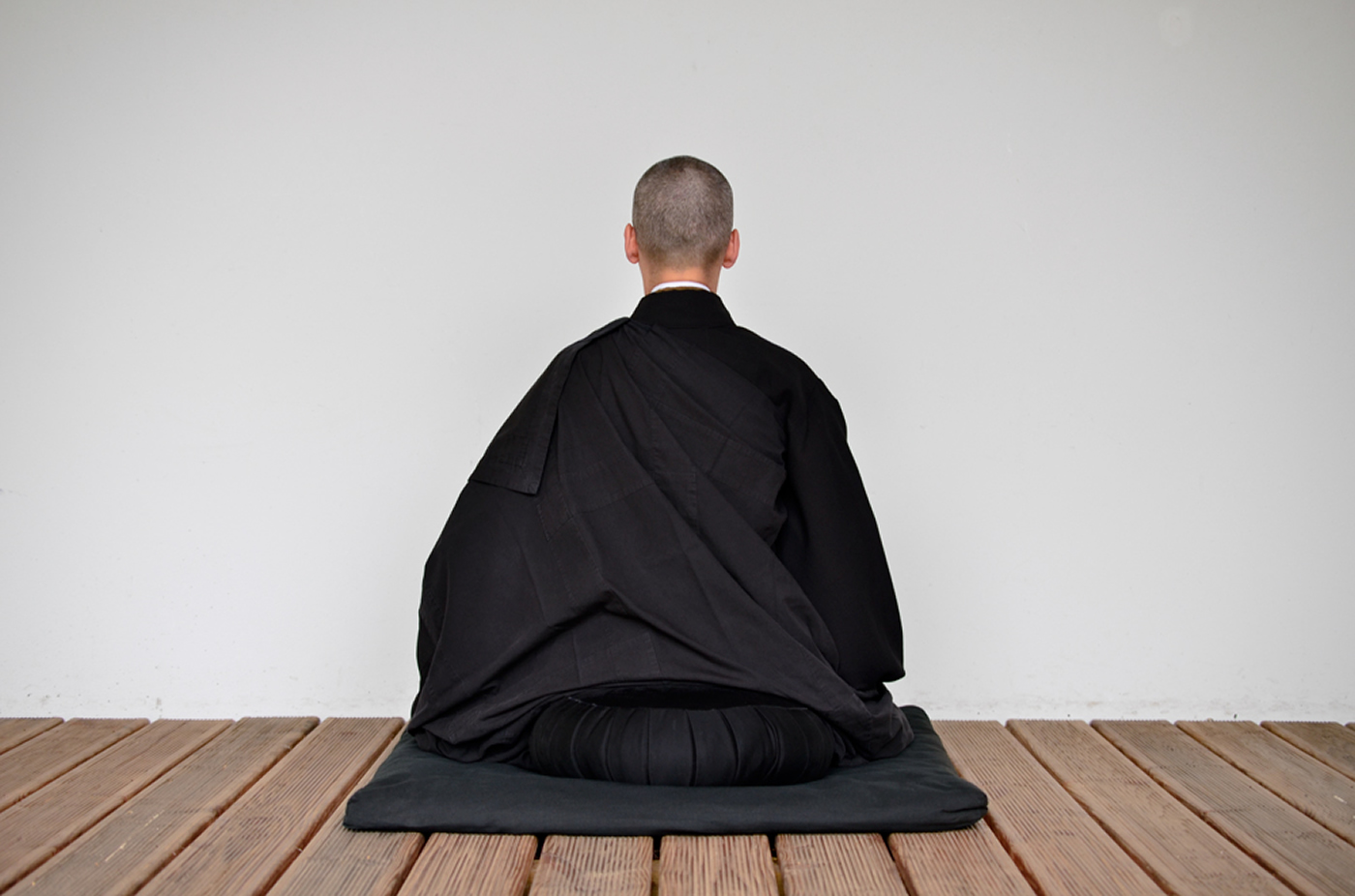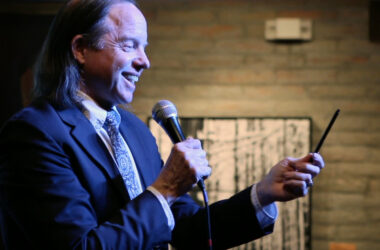Hi, welcome back to the Lam Rim (LAM RIM), Steps of the Path to Enlightenment. We were talking about nirvana. How to reach nirvana. What would it look like if I achieve nirvana? I always like to tell my friends how I grew up with four brothers and we were always fighting. And my little brother, two brothers under me, he’d love to get me upset. He tried so hard to get me upset and I was famous in the family because no one can get me upset. But this brother could get me upset. And if he gets me upset, he’s so happy. “Ha! Ha! Ha! I got you upset!” And he would do strange things. So if I reach nirvana nobody can get me upset, ever. Nobody. Not even my husband or wife. Nobody can make me upset. Then you know you have reached nirvana. So that’s nirvana.
Being nice to other people is like the foundation of the teachings. If someone in a city is being nice to other people then Buddhism exists there. Even if they don’t believe in Buddhism, it doesn’t matter.
So we were talking about reaching nirvana, and we were talking about three trainings that help you get there. One is being nice to other people. Morality. What is the second one? Meditation. And then the third one is understanding the pen, understanding emptiness. Now we reached a part about the teachings, and we talked about how being nice to other people is like the foundation of the teachings. If someone in a city is being nice to other people then Buddhism exists there. Even if they don’t believe in Buddhism, it doesn’t matter.
Now he says, he’s continuing, tenpa dzin shepa chu triy teng ne chu shepa chikpu la mi serwar (BSTAN PA ‘DZIN ZHES PA CHOS KHRI’I STENG NAS CHOS BSHAD PA GCIG PU LA MI ZER BAR). We have this expression in Buddhism called “Dharma Lord.” Like, “I’m a Dharma Master.” Okay, you can say Dharma Master. So who’s a Dharma Master? What’s a Dharma Master? Some people say, “Oh, geshe, he translates. Dharma Master. You must be a Dharma Master. You are a geshe.” And he says, “Listen…” He says here, “Dharma Master doesn’t mean a geshe sitting on the teaching place and teaching Buddhism.” He says, “That’s not a Dharma Master.” Then somebody said to him, “What is a Dharma Master?” He says, “A person who keeps the vows in their own heart. That’s a Dharma Master.” Then they are a holder of the lineage. They are a Dharma Lord. They are a Dharma Master. They are holding the lineage of the Buddha. They are keeping the tradition of Buddhism in the world if they’re being nice to other people. That’s a Dharma Master.

I thought it’s my job to find photographs, images that remind us of each point and I found this image, and it’s a lady, and she’s sitting in her… I don’t know… in her bedroom? Guess what she’s doing. She’s preparing her taxes for this year. It’s a very stressful time in every country, I think so. And the government expects you to finish the paperwork and prepare your taxes. So, this is a Dharma Master. I chose a picture of a Dharma Master. This is a Dharma Master. This lady is a Dharma Master and she’s the real Dharma Master. She doesn’t have this geshe hat, and she doesn’t have beads on her arms, and she’s not ringing a bell. But she’s a Dharma Master. Why? She’s keeping her vows. Why? She’s paying her taxes! Hundred percent of her taxes. If you want to be a really cool Dharma person, if you want to be Dharma hip, then pay a hundred and five percent of your taxes, or pay a hundred and eight percent of your taxes. Zakat–automatic donation for the poor. Pay extra taxes. She’s a Dharma Holder. She’s a Dharma Master. Why? She’s paying her taxes on time. Because they help everybody in the country. So she’s a real Dharma Master. She’s not teaching Buddhism on top of a throne with a big yellow hat and all these bells and things. She’s a real Dharma Master. And it’s not meant metaphorically; it’s meant literally. She’s a real Dharma Master. So you want a Dharma Master? Go look for somebody like that, okay?
[su_icon icon=”icon: link” color=”#ff1259″ size=”20″ shape_size=”12″ url=”https://youtu.be/4_xk8WV60to?t=5m1s” target=”blank”]Video[/su_icon]Next sentence: lung chu la tu sam che na lung gi tenpa dzinpa dang (LUNG CHOS LA THOS BSAM BYAS NA LUNG GI BSTAN PA ‘DZIN PA DANG,) If you study the written records of Buddhism, if you go to the ACIP organization under John Brady, and you study the millions of pages they have preserved in the world, then, okay, we can call you a Dharma Master of the written Dharma–of the physical Dharma. ke langpay tsultrim nam dak sung na tokpay tenpa dzinpa yin (KHAS BLANGS PA’I TSUL KHRIMS RNAM DAG BSRUNG NA RTOGS PA’I BSTAN PA ‘DZIN PA YIN) but if you keep the vows that you agreed to keep–“Okay, I won’t kill, I won’t steal, I won’t hurt other people’s relationships, I won’t lie, and I won’t use alcohol or drugs.” If you keep those, then you are a Dharma Master of the real teachings, of the inner teachings. The teachings as ideas–tokpay tenpa (RTOGS PA’I BSTAN PA).
dompa sum ne kyang rang re lak tu lun nge so tar yin (SDOM PA GSUM NAS KYANG RANG RES LAG TU LON NGES SO THAR YIN) There’s three levels of vows. (1) Basic kindness to other people. Then (2) bodhisattva vows. “I will try to become a Buddha to help all people.” And then (3) secret vows. “I will try to do it in one lifetime.” But these vows, he says these vows are the ones that you can practice right away. They’re right in your pocket. Everybody has them. Everybody’s supposed to keep the ten good deeds. You have it available. Your Dharma Master equipment is in your pocket already. tsultrim denpay gelong u dang den, she sok dang (TSUL KHRIMS LDAN PA’I DGE SLONG ‘OD DANG LDAN, ZHES SOGS DANG,) Then in the next picture, you see a light of the world. I go online to find legal images that I can show you guys and when I type in “happy person,” this guy’s face keeps coming up. He just looks so happy to me. I love his picture. He just looks like he’s shining with light.

That’s what the text says here. Pabongka Rinpoche quotes a sutra and the sutra says: tsultrim denpay gelong u dang den (TSUL KHRIMS LDAN PA’I DGE SLONG ‘OD DANG LDAN) a person who keeps their morality, they are shining–they are shining light. Christianity says to shine your light to the world. Don’t hide your goodness. Let your goodness shine. It’s exactly the idea here. Of course, whenever there’s a quotation from an ancient book, I like to go read it. I like to go slow through the lam rim. I like to enjoy it as if it were fine wine. I like to enjoy the taste. So, I’m going to take you to that sutra. And let’s read the whole section of that sutra.
[su_icon icon=”icon: link” color=”#ff1259″ size=”20″ shape_size=”12″ url=”https://youtu.be/4_xk8WV60to?t=8m21s” target=”blank”]Video[/su_icon]Okay, the sutra is called tsultrim yangdakpar denpay do (TSUL KHRIMS YANG DAG PAR LDAN PA’I MDO), you won’t see this…this is not part of this lam rim, but he quotes it, so I went and got the quotation for you. And I thought you would enjoy more context. So here we go. The sutra is called tsultrim yangdakpar denpay do, Shila Sanyukta Sutra, which means the Sutra of the People who Keep Good Behavior. That’s the name of the sutra. It’s poetry. Okay, here we go.
tsultrim denpay gelong u dang den, (TSUL KHRIMS LDAN PA’I DGE SLONG ‘OD DANG LDAN,)
tsultrim trim denpa drag gyur dewa tob,(TSUL KHRIMS LDAN PA GRAGS ‘GYUR BDE BA THOB,)
tsultrim denpa to ri droway gyu, (TSUL KHRIMS LDAN PA MTHO RIS ‘GRO BA’I RGYU,)
tsultrim sungpe nye-ngen-da tob gyur, (TSUL KHRIMS BSRUNGS PAS MYA NGAN ‘DA’ THOB ‘GYUR,)
ji tar mik me suk tong mirung tar, (JI LTAR MIG MED GZUGS MTHONG MI RUNG LTAR,)
de shin tsultrim me na chu mi tong, (DE BZHIN TSUL KHRIMS MED NA CHOS MI MTHONG,)
ji tar kang me lam juk ga la nu, (JI LTAR RKANG MED LAM ‘JUG GA LA NUS,)
de shin tsultrim me na tar mingyur. (DE BZHIN TSUL KHRIMS MED NA THAR MI ‘GYUR,)
Very famous. Okay, here we go.
tsultrim denpay gelong u dang den–A person who is keeping their vows is like a shining light for the whole world.
tsultrim denpa drak gyur dewa tob–people who keep their vows, keep their morality, they become “real” famous, beautiful famous–not like these famous criminals or famous politicians. The person who keeps their vows, they are good famous.
dewa tob (BDE BA THOB) and because of that, they’re always happy. They always feel happy.
tsultrim denpa to ri droway gyu (TSUL KHRIMS LDAN PA MTHO RIS ‘GRO BA’I RGYU,) If you keep your good behavior, if you’re nice to other people, then after you die, you don’t have to worry; you’re going to go to a nice place.
tsultrim sungpe nye-ngen-da tob gyur (TSUL KHRIMS BSRUNGS PAS MYA NGAN ‘DA’ THOB ‘GYUR,) And people who keep their vows, they get to go to nirvana. Not other people.
ji tar mik me suk tong mi rung tar (JI LTAR MIG MED GZUGS MTHONG MI RUNG LTAR,) if someone took a knife and tore out your eyes, if someone tore out your eyes–ji tar mik me suk tong–(JI LTAR MIG MED GZUGS MTHONG) you wouldn’t be able to see anything. de shin tsultrim me na chu mi tong (DE BZHIN TSUL KHRIMS MED NA CHOS MI MTHONG,) and the person who is not nice to other people is blind to the Dharma. They will never understand the Dharma. It’s like you took their eyes out. A person who is not nice to other people has ruined their eyes and they cannot see the Dharma. They can sit in the lam rim teaching for years and years, and they will understand nothing.
ji tar kang me lam juk ga la nu (JI LTAR RKANG MED LAM ‘JUG GA LA NUS,) If someone cut your legs off, you cannot climb to the top of Mount Everest. If you don’t keep good behavior to other people, or be nice to other people, forget the rest of Buddhism.
de shin tsultrim me na tar mingyur (DE BZHIN TSUL KHRIMS MED NA THAR MI ‘GYUR,) a person with no moral life will never go to freedom.
gang na gelong dulwa dzinpa yupay chok der nangwa dang che (GANG NA DGE SLONG ‘DUL BA ‘DZIN PA YOD PA’I PHYOGS DER SNANG BA DANG BCAS) any place in the world where there’s one person being nice to other people, we can say there’s light in that part of the world. There’s not darkness. That part of this world is free of darkness. Spiritual darkness.
u dang che (‘OD DANG BCAS) covered with light.
sa chok de nga nyi kyi ma tongpar tong (SA PHYOGS DE NGA NYID KYIS MA STONGS PAR MTHONG,) If there’s one person being nice to another person in this world and they’re standing in a house, then I am in that house. Buddha says, “Then I am in that house.” It’s very beautiful. He says, nga nyi kyi ma tong (NGA NYID KYIS MA STONGS) “The house is not empty of me.” So he makes almost like a Buddhist joke, you know? He says, “if one person in a house is being nice to other people in a house, then there’s no emptiness of Buddha in that house”. It means, “I am there. I am there.” And he’s not being metaphorical. If you have a choice, would you like the historical Buddha to come to your house and have lunch with you? Or would you rather have a person who’s keeping their vows have lunch with you? Then take the person who’s keeping their vows, because that’s the real Buddha. That’s the real Buddha, not the historical Buddha. Okay? That’s cool.
If a person is being nice to another person, I am in that city. I’m still there.
ma tong par (MA STONGS PAR) sa chok der nga-ang tuk le chung ngur shuk (SA PHYOGS DER NGA’ANG THUGS LAS CHUNG NGUR BZHUGS) This is very beautiful. He says that if a person is being nice to other people, there’s light in that place. In that city there is light. If a person is being nice to another person, I am in that city. I’m still there. I am in that city. And tuk le chung ngur gyur (THUGS LAS CHUNG NGUR GYUR) you made my life easier. Wow! The Buddha said to us, “Listen, I’ve got to take care of a lot of people, this is stressful!” This is like being a mom with a lot of kids. “I have to be everywhere in the universe. I have to keep watching out for everybody.” Quan Yin, right? It means keep listening in case someone says, “Mom, I need help!” Avalokiteshvara. “Who needs help? Who needs help?” And Buddha says, “You want to be nice to Buddha?” Yeah. “Give me a break!” What’s a break? It’s like when the babysitter comes over and takes Amalie from Nick and Erin, and says, “You guys relax, you guys go to Butterfly Burger. I’ll take care of the kids. I’ll watch the kids. I’ll watch Amalie,” or Ava–Adam and Katie’s baby. “Don’t worry, I’ll watch the kid.”
[su_icon icon=”icon: link” color=”#ff1259″ size=”20″ shape_size=”12″ url=”https://youtu.be/4_xk8WV60to?t=14m23s” target=”blank”]Video[/su_icon]So Buddha says if one person, in one place, is being nice to another person, I get to take a break. Because they’re taking care of everything. They’re the babysitter now. It’s a very beautiful word–tuk le chung ngur (THUGS LAS CHUNG NGUR) That place I don’t have to get involved. I can take care of other places because that place is already taken care of. That’s very beautiful.
shuk sungpa sok tar kye chu (BZHUGS GSUNGS PA SOGS LTAR KHYAD CHOS) now that’s a quotation also. I went and got it for you. It’s from dulwa shung dampa (‘DUL BA GZHUNG DAM PA), which is called The Perfect Book on Morality. This quotation was hard to find, and some people have not been able to find it. But because we have John Brady’s database, I was able to find it.
ngay chok der nangwar drakpa dang, nangwar gyurpa dang, rabtu nangwar gyurpa dang, ngay chok der ma tongpar drakpa dang, dulwa dzinpay gangsak de tabu chok gang na nepa dey chok su deshin shekpa tuk le chungwar gyur ro (NGA’I PHYOGS DER SNANG BAR GRAGS PA DANG, SNANG BAR GYUR PA DANG, RAB TU SNANG BAR GYUR PA DANG, NGA’I PHYOGS DER MA STONGS PAR GRAGS PA DANG, ‘DUL BA ‘DZIN PA’I GANG ZAG DE LTA BU PHYOGS GANG NA GNAS PA DE’I PHYOGS SU DE BZHIN GSHEGS PA THUGS LAS CHUNG BAR ‘GYUR RO,)
“I can take a break.” So the ending is the clue. And we found it in that text.
rang re bu gang chen la chiy gyel kab na mepay kye chu (RANG RE BOD GANGS CAN LA PHYI’I RGYAL KHAB NA MED PA’I KHYAD CHOS)
And then he…you know, old Tibet, where my teacher came from…my teacher grew up in Tibet in the 1920s and the 1930s. In old Tibet, they didn’t have cars. They didn’t even have bicycles. There’s a story about the first aluminum pot that made it to Tibet. It became a famous thing. So anyway, these things weren’t there. So Pabongka Rinpoche, who’s speaking, probably in the 1920s I’m guessing, he says “look, we aren’t like those other countries. They have steam ships. They have airplanes. They have cars. We’re just sheep herders and yak herders. We’re here in the Himalayan mountains and we don’t have any of that stuff. But, we got one thing here. We got Dharma!” They got airplanes. They got cars. They got ships. Okay, that’s cool, but we got Dharma. That’s what we got.
And it’s trel yun pen dey gyi tsawa (‘PHRAL YUN PHAN BDE’I GYI RTZA BA) it’s the only thing that can really make you happy. A car cannot make you happy. Airplane. It’s nice to have a car. Dharma people should have a car. Dharma people should have airplanes. Dharma people should have ships. But it’s not necessarily going to make you happy. But we got the thing here in our country, we got the Dharma.
And trel dang yun (‘PHRAL DANG YUN) means it makes you happy day to day, and it makes you happy after you die. It takes care of you after you die. sanggye kyi tenpa di yin (SANGS RGYAS KYI BSTAN PA ‘DI YIN) de dak mi dak ni (DE DAG MI DAG NI) kangpa dang, mi mangwa dang, chu dze trawa sok min gyi (KHANG PA DANG, MI MANG BA DANG, MCHOD RDZAS BKRA BA SOGS MIN GYI) So how do we know the Dharma is in good shape in a country? How do we know that the Dharma is strong in a country? How how can you tell whether or not Dharma strong in a country? kangpa (KHANG PA) it doesn’t depend on how many tall buildings you have in your country. mi mangwa (MI MANG BA) it doesn’t have anything to do with how big the population is in your country. chu dze trawa sok (MCHOD RDZAS BKRA BA SOGS) it doesn’t even have to do with how beautiful you can make offerings in the temple or the churches. It’s not that.
If someone is being nice to another person, then we can say that country is advanced, and that country is progressed, and that country is modern, and that country is an important country, and that country is a superpower.
tenpay tsawa so so tarpay tsultrim di nyi la rak le (BSTAN PA’I RTZA BA SO SO THAR PA’I TSUL KHRIMS ‘DI NYID LA RAG LAS) if someone is being nice to another person, then we can say that country is advanced, and that country is progressed, and that country is modern, and that country is an important country, and that country is a superpower. If a few people are trying to be nice to other people, then that country is a superpower. It doesn’t depend on how many rockets or bombs you have, or things like that. Okay? It’s a very beautiful idea.
de nyi nampar dakpa shik ma jungwar (DE NYID RNAM PAR DAG PA ZHIG MA BYUNG BAR) Now, suppose you start to lose the Dharma in your country. Suppose you had the Dharma, or lam rim videos reached your internet in your country, but rang gyu la nub (RANG RGYUD LA NUB), and we have a picture here. This is a picture I took near my house. It’s a sunset near my house.
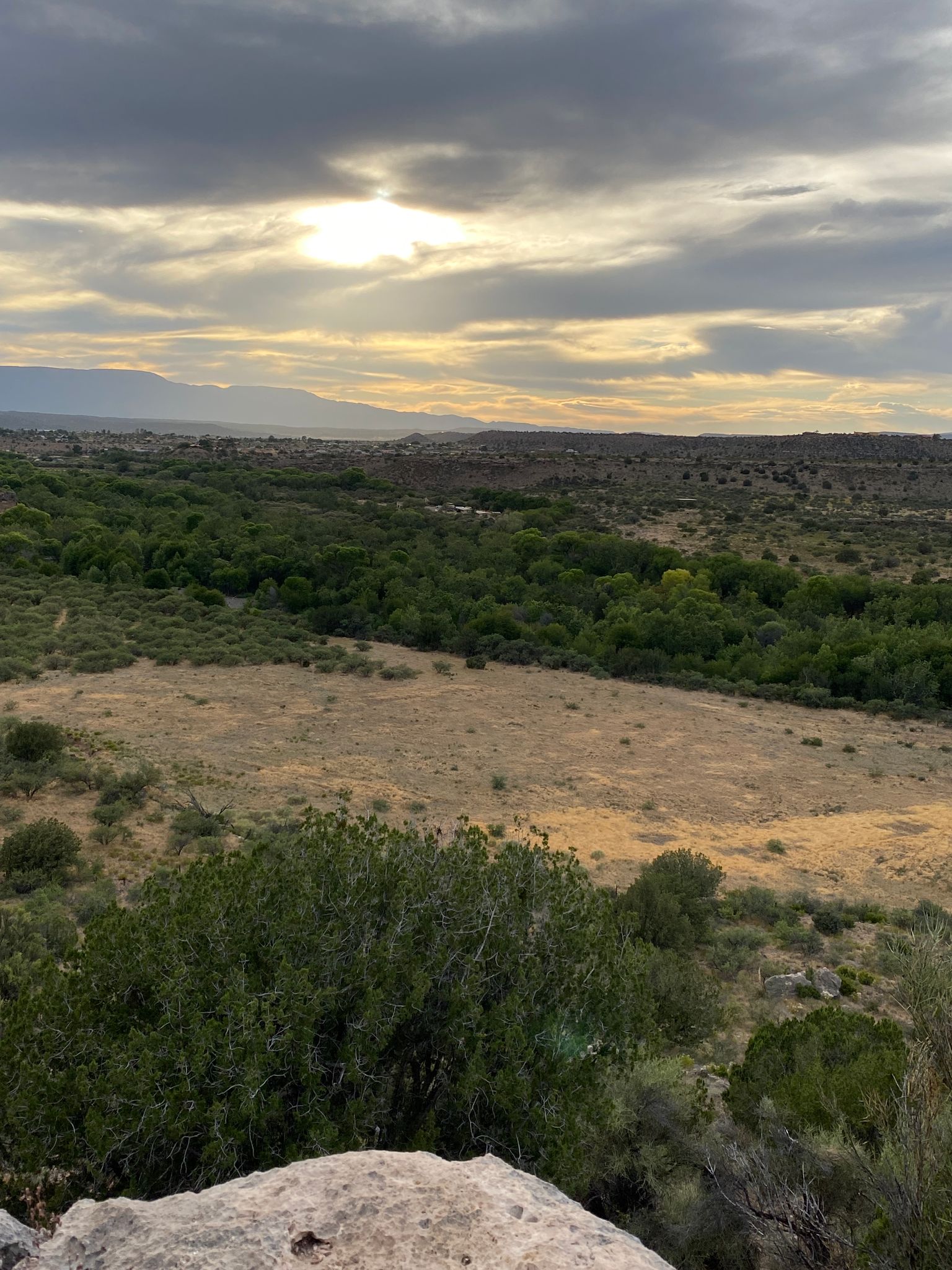
The other day was my partner’s birthday, Veronica’s birthday, so we took a long hike. It’s like an hour and a half and you climb this tall mountain. And from up there, we watched the sun go down, and it was a strange sunset. Usually the sun here is very bright, but the sun started to go down, and then this black cloud started to come down on top of the sun. It was kind of strange, you know? First the sun got dimmer and dimmer and dimmer. And these black clouds came in, and then the sun sank. In English, we say the sun sank. And everything got dark and gray. And we had trouble because we were enjoying dessert and we were having a picnic. We ran out of time and we had to run home because it was getting dark. Why are we talking about that?
Pabongka Rinpoche says there are places where the sun sets in your heart–inside your chest. The sun goes down, and your heart becomes dark and your chest becomes dark. The sunlight goes away and the darkness starts to come in your own heart. So he says something very powerful in Tibetan. He uses the verb nub (NUB), which means the “sun went down” in your heart. So, if you cannot be nice to other people day-to-day, hour-to-hour, minute-to-minute, then that Dharma went down in your heart. The sun of the Dharma went down in your heart.
chir jikten na tenpa sa dar do dar yin yang rang la tenpa gu nub tu gyurwa yin (SPYIR ‘JIG RTEN NA BSTAN PA SA DAR RDO DAR YIN YANG RANG LA BSTAN PA SGOS NUB TU ‘GYUR BA YIN) The teachings may have spread through the internet, and Tim Lowenhaupt’s hard work, to many, many countries. Maybe the Dharma has spread to many, many countries. The internet has carried the lam rim to many, many countries, and Tim’s one hundred-something volunteers are translating it into many languages, but if you’re not nice to other people, the Dharma died in your country. Okay? Very, very sad. The sun went down in your country.
[su_icon icon=”icon: link” color=”#ff1259″ size=”20″ shape_size=”12″ url=”https://youtu.be/4_xk8WV60to?t=21m58s” target=”blank”]Video[/su_icon]It doesn’t matter it’s on the internet. It doesn’t matter it spread to your country. It doesn’t matter you are translating it. If the translators aren’t nice to each other then the Dharma… then the sun went down. It’s very sad. It’s a terrible image. I don’t like it. Let’s go on.
do ting-ngen-dzin gyi gyelpo le (MDO TING NGE ‘DZIN GYI RGYAL PO LAS) This is a very, very famous sutra called Samādhi Rāja which means the King of Meditation Sutra. It’s a very famous sutra called the King of Meditation. It’s a very beautiful sutra and it actually is like the beginning of a meditation manual. Okay, suppose someone for billions of years, equal to the grains of sand in the Ganges River…the Ganges River is… sometimes it can take an hour to cross the Ganges River on a bridge; it’s huge. So imagine all the drops of water, or imagine all the grains of sand in the Ganges River. Each one is a billion years. Each grain of sand is a billion years. Okay, and for that many billion years, out of great faith, you offer to the Buddha a beautiful dinner, or delicious drinks to drink, or religious umbrellas, sun cover, or these spiritual flags that we fly, or you offer these butter lamps, for billions of years. And not to one Buddha–to tens of millions of Buddhas. And you make these offerings for billions of years.
gang gi dam chu rabtu jikpa dang, der shek tenpa gakpar gyurway tse (GANG GIS DAM CHOS RAB TU ‘JIG PA DANG, BDER GSHEGS BSTAN PA ‘GAG PAR ‘GYUR BA’I TSE) and the other hand–this is very, very beautiful–when things get hard, when things in the world get hard, when there’s a problem in the world, when there’s a virus, when there’s not a lot of money, and there’s not a lot of food. In our country, there’s not a lot toilet paper. When things get hard, that’s very beautiful. gang gi dam chu ratbu jikpa (GANG GIS DAM CHOS RAB TU ‘JIG PA) when people are forgetting about being nice to each other, and when people are afraid, and people are holding on to their money, and people are holding on to their food, they are not sharing with other people, der shek tenpa gakpar gyur (BDER GSHEGS BSTAN PA ‘GAG PAR ‘GYUR) at that moment, the Dharma is dying in those countries because people are not being nice to each other.
A person who is nice to one other person during the virus days, a person who is generous to one other person during difficult times, that’s more karma than a billion people offering veggie burgers to a billion Buddhas for a billion years.
nyin tsen du ni lappa chik chupa (NYIN MTSAN DU NI BSLAB PA GCIG SPYOD PA) but if there’s one person in those dangerous times, dark times, virus times…if there’s one person being nice to another person, sunam di ni dewe che drak chak (BSOD NAMS ‘DI NI DE BAS BYE BRAG ‘PHAGS,) the good seeds, the good karma, done by a person during dark days is more valuable than the person who gives billions of offerings to the Buddha when things are going well. So a person who is nice to one other person during the virus days, a person who is generous to one other person during difficult times, that’s more karma than a billion people offering veggie burgers to a billion Buddhas for a billion years.
[su_icon icon=”icon: link” color=”#ff1259″ size=”20″ shape_size=”12″ url=”https://youtu.be/4_xk8WV60to?t=25m57s” target=”blank”]Video[/su_icon]I’ll say it again. It’s hard to say. If one person during the virus times when things are difficult, is nice to another person, that good karma is more powerful than offering things to a billion lamas for a billion years when things are easy, when times are easy. So I think those of us who are studying lam rim right now, we’re in such a lucky place. There’s a lot of fear. These are dark times and there is a lot of fear and a lot of worry, and if we do one small good thing during this time, it’s more powerful than people doing nice things for hundreds of years when it’s easy. All right, so we’re lucky to have such a difficult time. I went and found the quotation and it’s exactly correct. It’s exactly quoted correctly.
shepa tar nyin tsen du druk tu du sum gyi sanggye la (ZHES PA LTAR NYIN MTSAN DUS DRUG TU DUS GSUM GYI SANGS RGYAS LA) chupa pulwa le nyik dundir tsultrim sungwa pen yon che (MCHOD PA PHUL BA LAS SNYIGS DUS ‘DIR TSUL KHRIMS BSRUNG BA PHAN YON CHE) you could, day and night, he says du druk tu du sum (DUS DRUG TU DUS GSUM)…du sum (DUS GSUM) means Buddhas of the past, present, and future. It means any person who got enlightened before, and any person who got enlightened today, and any person who will
ever be enlightened in the future–that’s the du sum–“three times”. du druk (DUS DRUG) means “six times” a day you stop and you make offerings to them, every single Buddha in history. Including future history. You stop and make offerings to them–on the one hand. On the other hand, you are in a world situation which is dangerous and frightening, and hard for everybody, and you show one kindness to another person, your good karma is more than the other person. Okay?
Those who made offerings to all the Buddhas in history. To do one nice thing to another person during the time of the virus, your good karma is more powerful. So I think it’s amazing. It’s very good for our times, for these times. So that’s a Sunlight in the Time of the Virus. Love in the Time of the Virus. This is the time. And the karmas, all those karmas, are millions of times more powerful during these times. So take some time, relax. You can be scared. You should be scared. It’s a hard thing. You should be worried and you should be concerned. But pause from time to time and do something really nice for another person. Sacrifice something, money or food or your time, and give it to somebody else. In this time. And then you’re a real Dharma Master.
Alright. See you in the next episode.

